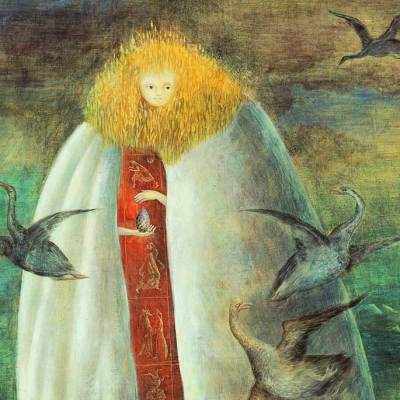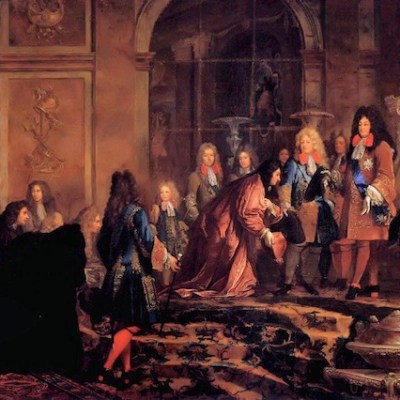From the June issue of Apollo: preview and subscribe here
For as long as I have lived in London, Sir John Soane’s Museum has been one of my favourite places to visit. When I first encountered it in my early twenties, I was less aware of Soane as an architect and more aware of him as an obsessive collector. As someone with a similar affliction, I identified with him at once. My passion for collecting led me to become a dealer in Old Master drawings, but while I sold these for a living, I still wanted to keep some things for myself. To avoid any conflict of interest with my clients, I decided to acquire works focusing on the theme of the ‘artist at work’. Not that I am competing with Soane, but in 30 years the collection has grown to nearly 1,000 works, including paintings, drawings, prints, sculpture, and photographs, from all periods.
It was Tim Knox’s idea, when he was the director of the Soane, to show my collection in the exhibition space created during the expansion of the museum. Art historians Adriano Aymonino, Anne Varick Lauder, and I came up with a theme that would suit the museum: ‘Drawn from the Antique: Artists & the Classical Ideal’, focusing on the role of antique sculpture in artistic education and practice. This theme is at the heart of Soane’s conception of his museum, namely to give young artists and architects the opportunity to look at great examples from the classical past and be inspired by them.
It quickly became apparent that, even though I could provide some very good examples of works on the subject, the display would be stronger if we were to source pieces from other collections. We were fortunate to secure some excellent loans thanks to the generosity of 10 museums around the world. In a relatively short time, we produced a publication that treats this potentially unwieldy subject concisely, but in great depth. Once we came up with the concept and the catalogue, we felt the exhibition would benefit from being seen in a second venue. We found an ideal partner in the Teylers Museum in Haarlem, where the exhibition was shown from 11 March–31 May.
Study of a Plaster Cast of the Belvedere Torso (c. 1792), J.M.W. Turner. Victoria & Albert Museum, London

The 34 works displayed in the two exhibition rooms at the Soane explore the role of antique sculpture in teaching the principles of art, from the Renaissance to the 19th century. Classical statues offered young artists models from which they could learn to depict the human figure in its idealised form, as well as providing more mature artists with a vast repertoire of motifs for use in their original work. The exhibition begins with the Renaissance prints of Baccio Bandinelli, which depict early Italian academies, followed by a rare drawing by Federico Zuccaro of his brother Taddeo, who is shown sketching the Laocoön, one of the most celebrated antique sculptures which had come to light only a few decades earlier.
The display continues through to the later 16th and 17th centuries, with striking examples by Goltzius and Rubens that trace the influence of the antique canon on artists in northern Europe. Drawing antique statues, and plaster casts reproducing them, became part of a rigorous academic training. Artists were made to copy them for years before they were permitted to work from a live model, as shown in the watercolour by the 18th-century French artist Charles-Joseph Natoire. Two studies by Turner show that this practice was also widespread in Britain in the same period. The peak of this tradition was in the 18th century, with many artists travelling to Rome to complete their education, as epitomised by drawings in my collection by Hubert Robert.
To some artists, the grandeur of the antique could be overwhelming, as seen in the celebrated sheet by Henry Fuseli. By the mid 19th century, through inexpensive reproduction, the antique canon became even more diffuse, but lost ground as new and modern artistic movements took precedence.
We hope that this exhibition and the comprehensive, illustrated catalogue will give an insight into a phenomenon crucial for the understanding and appreciation of European art.
Beautiful images from ‘Drawn from the Antique’
Katrin Bellinger has been a dealer in Old Master drawings since 1985 and a partner at Colnaghi since 2012.
‘Drawn from the Antique: Artists & the Classical Ideal’ is at Sir John Soane’s Museum, London, from 25 June until 26 September 2015.


